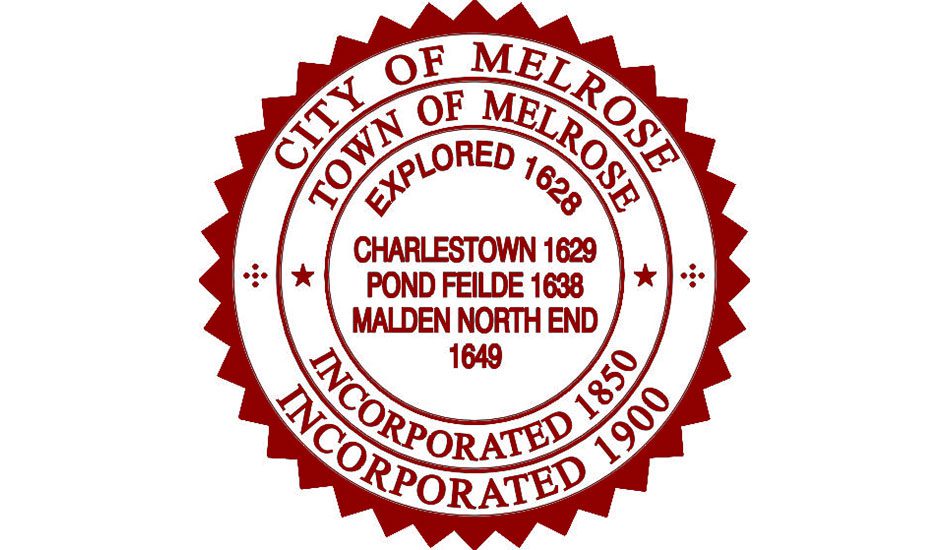Strategy affirms that traffic deaths, serious injuries are preventable
MELROSE — Mayor Jen Grigoraitis, Public Works Director Elena Proakis Ellis and City Engineer Vonnie Reis reaffirmed the City of Melrose’s commitment to Vision Zero, an international roadway safety initiative that seeks to prevent all traffic and pedestrian fatalities.
As part of the City’s Vision Zero efforts, the Melrose Department of Public Works, Engineering Division has launched an online Traffic Calming Prioritization tool for Melrose residents, businesses and other community stakeholders.
The City of Melrose is a member of the Boston Region Metropolitan Planning Organization (MPO), a 97-community regional organization which coordinates transportation planning throughout Greater Boston. With the support of a Safe Streets and Roads for All (SS4A) planning grant from the United States Department of Transportation (USDOT), the Boston Region MPO is developing a Vision Zero Action Plan for the cities and towns within the region, including Melrose. The Boston Region MPO was awarded $2.16 million from USDOT and received 20 percent matching funds from the Massachusetts Department of Transportation, bringing the total grant amount to $2.7 million.
$100,000 of this grant award is designated for Melrose to advance city-specific Vision Zero goals. Melrose will use this funding to perform more detailed analyses on key locations in Melrose with a history of crashes. Local analysis based on actual incident data can then be used to determine root causes of crashes and assess alternatives to improve roadway safety. City officials also intend to establish a Vision Zero Commission to guide these efforts.
“Vision Zero is a proven framework for dramatically reducing death and serious injuries on our roads, and in a small, pedestrian-friendly city like Melrose, this work is indispensable,” said the mayor. “In collaboration with our peers throughout Greater Boston and with the support of the federal SS4A funds, I believe we can achieve this ambitious and worthy goal.”
One important source of information for the Vision Zero Action Plan is the transportation survey. All residents are encouraged to share their transportation safety concerns and ideas for improvement. The survey is available in English, Spanish (Español), Brazilian Portuguese (Português), Vietnamese (Tiếng Việt), Traditional Chinese (漢語), Simplified Chinese (汉语), and Haitian Creole (Kreyòl Ayisyen). Visit www.bostonmpovisionzero.org and select “We Want to Hear from You” in the main menu to access the survey. The final regional Vision Zero Action Plan will provide a framework that will unlock additional safety project and program implementation funds for municipalities in future SS4A funding rounds.
The City of Melrose’s online Traffic Calming Prioritization tool provides information to prioritize traffic calming efforts. Street segments were assigned scores based on three factors, including demographic characteristics of the area, including the number of children or elderly residents; proximity to common destinations such as health care facilities, parks, schools, or public buildings; and historic traffic safety data like the number of motor vehicle, bicycle, or pedestrian crashes in the area over the last 10 years. Using the online tool, Melrose residents and other constituents can review the aggregate scores around their neighborhoods or frequent destinations, and municipal bodies and departments like the Traffic Commission and Public Works will utilize this data to inform safety improvements throughout the city.
About the Boston Region Vision Zero Action Plan
Transportation safety is an essential focus of the Boston Region MPO and one of the major goals identified in the MPO’s Long-Range Transportation Plan, Destination 2050. The Vision Zero Action Plan (the ‘Plan’) will address the safety-related needs identified in Destination 2050 and serve as a roadmap for the 97 communities in the region to implement projects that meet the goals of Vision Zero.
In developing the Vision Zero Action Plan, the MPO will adopt the Safe System approach that deems deaths and serious injuries unacceptable, focuses on safety for people, acknowledges that humans make mistakes, and builds redundancies to prevent severe crashes. The Vision Zero Action Plan will include analysis of crash data to identify trends and high-risk corridors, engagement with communities disproportionately impacted by roadway safety issues, and the formulation of evidence-based, data-driven policy and project recommendations.
The Plan, anticipated to be completed in December 2025, will help identify transportation safety problems through a data-driven and community-based approach. In addition to setting a path for the region to work towards zero deaths and serious injuries on our roads, the Plan will unlock future funding opportunities for communities through the Safe Streets and Roads for All (SS4A) Grant Program.





